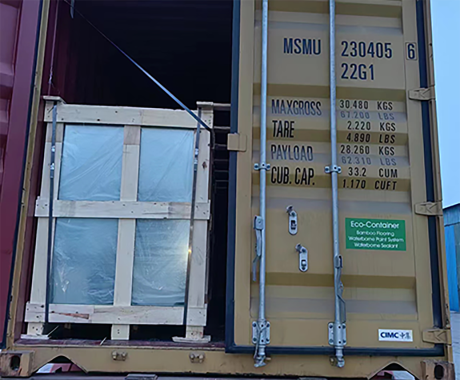

The Current Market Trends for 4mm Float Glass
In recent years, the construction and manufacturing sectors have witnessed a growing demand for float glass. Among various thicknesses available, 4mm float glass is particularly popular due to its versatility and wide range of applications. This article provides insights into the current pricing trends and factors influencing the market for 4mm float glass.
Understanding Float Glass
Float glass is a high-quality, flat glass produced using the float process, where molten glass is floated on top of molten tin. This method results in a product with excellent optical clarity and a uniform thickness, making it ideal for various uses, including windows, doors, and glass facades. With a thickness of 4mm, this type of glass offers a balance between strength and weight, making it suitable for residential and commercial applications.
Price Overview
The price of 4mm float glass can vary significantly based on several factors, including geographical location, production costs, and market demand. As of 2023, the price range for 4mm float glass is generally observed between $30 to $50 per square meter, depending on the supplier and region. However, fluctuations in raw material costs, labor expenses, and energy prices can lead to variations in this pricing.
Influencing Factors
1. Raw Material Costs The primary components used in the production of float glass are silica sand, soda ash, and limestone. Any increase in the prices of these raw materials directly influences the final cost of float glass. For instance, disruptions in the supply chain or increased mining regulations can lead to higher input costs.

2. Energy Prices The production of float glass is energy-intensive, requiring high temperatures for melting glass. Therefore, changes in energy prices, particularly natural gas and electricity, have a substantial impact on production costs. Recent global events, such as geopolitical tensions and fluctuations in oil prices, have contributed to rising energy costs, subsequently affecting glass prices.
3. Market Demand Demand for 4mm float glass is closely linked to the health of the construction industry. A booming real estate market often leads to increased demand for glass products. Additionally, trends such as sustainable building practices and energy-efficient designs are driving the need for high-performance glazing solutions. In recent years, the surge in refurbishment projects has also supported the demand for float glass.
4. Geopolitical Factors Economic policies, trade agreements, and tariffs can impact the availability and pricing of float glass. For example, tariffs on imported glass can limit market supply, leading to price increases. Conversely, favorable trade agreements can result in lower prices and increased competition in the market.
Future Outlook
Looking ahead, the market for 4mm float glass is expected to remain robust, driven by ongoing urbanization and infrastructural development across various regions. Innovative technologies and improved manufacturing processes may also lead to cost efficiencies, which could stabilize prices in the long term. Furthermore, as the demand for environmentally friendly construction materials grows, float glass manufacturers are likely to focus on sustainable production methods, enhancing the market appeal of their products.
Conclusion
The market for 4mm float glass is influenced by a variety of dynamic factors, including raw material costs, energy prices, and demand fluctuations. As the construction industry continues to evolve, staying informed about these market trends is essential for stakeholders in the glass manufacturing and construction sectors. Whether for residential or commercial use, understanding the pricing and market dynamics surrounding 4mm float glass can help consumers and businesses make informed decisions.